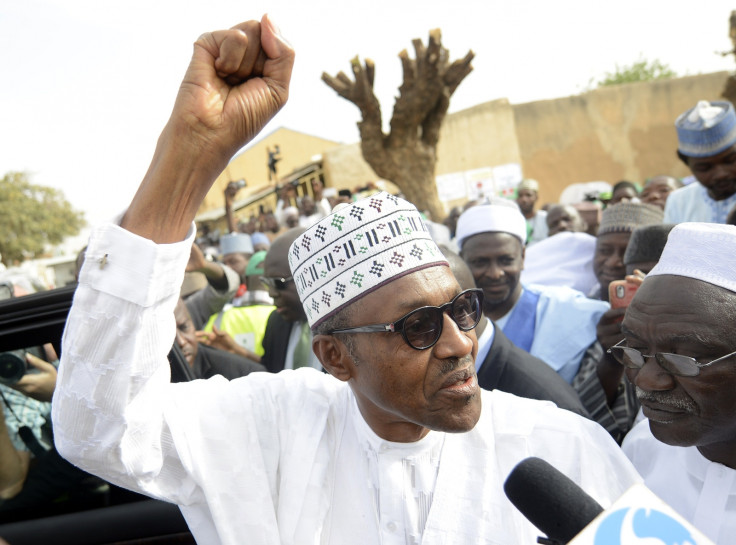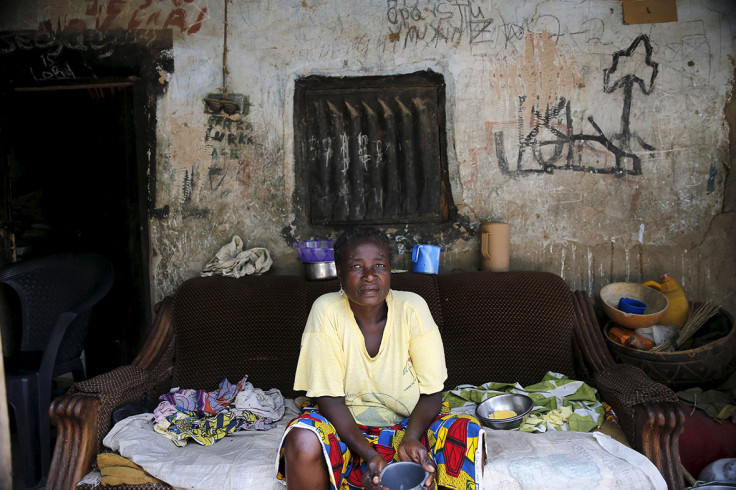G7 Summit: Nigeria's President Buhari arrives in Germany to discuss Boko Haram

Nigeria's President Muhammadu Buhari has arrived in Germany to attend a two-day Group of Seven (G7) meeting.
The talks started on Monday (8 June) and will focus on climate change, sustainability and terrorism.
The meeting is being attended by German Chancellor Angela Merkel, US President Barack Obama, UK Prime Minister David Cameron, Japan Prime Minister Shinzo Abe, French President Francois Hollande, Canadian PM Stephen Harper and Italian PM Matteo Renzi.
Buhari, together with Iraqi PM Haider al-Abadi and Tunisian President Beji Caid Essebsi, will join the leaders to discuss threats posed by terror groups such as Boko Haram (now Iswap) and the Islamic State (Isis).
Nigeria
Capital: Abuja
Population: 174,507,53 (2013 census)
Largest cities: Lagos, Kano, Abuja
Major ethnic groups: 21% Yoruba, 21% Hausa,
18% IgboLanguages: English, Hausa, Igbo, Yoruba
Religion: 50% Muslim, 40% Christian, 10% other
Currency: Naira (N) 1N = £0.0033; US$0.0050
Buhari, who is also to discuss corruption and development issues in Nigeria, was quoted by the Premium Times as saying: "These development issues, many and varied as they are, touch on the economy, combating corruption, increased foreign direct investment (FDI), power and energy, infrastructure, environment, enhanced transparency in elections and good governance."
The Nigerian leader, who won the presidential election in March defeating incumbent leader Goodluck Jonathan, vowed to defeat Boko Haram and announced the army would be relocated in Maiduguri, capital of Borno state, the epicentre of the insurgence.
The Nigerian government is being aided by mercenaries and troops from neighbouring countries Chad, Benin, Niger and Cameroon in its offensive and has scored some successes since the military cooperation started in February.
The US announced it would send military trainers to help the Nigerian army improve its intelligence gathering and logistics.
The group recently released a video in which it denied the government's announcement that the army had recaptured some territories previously occupied by the insurgents. Shortly after the video, suspected Boko Haram members carried out a bomb attack in Yola killing at least 31 people.

G7 talks take place as violence continues in Nigeria
The G7 meeting is taking place as a camp with 900 internally displaced people was discovered in Edo state, western Nigeria. The refugees are believed to have been displaced following violent attacks by Boko Haram, which has killed thousands of people since 2009.
The refugees, including women and children, lost their families as the insurgents attacked villages and burned down houses, the Punch reported.
One woman who had found shelter at the camp said: "Boko Haram attacked us in our village and we ran to the mountains. But they followed us and killed some people, including my husband. At the mountain, there was no food; we were just eating leaves.
Who are Nigeria's Boko Haram terrorists?
Boko Haram fights against Western influence in Nigeria and aims to impose its version of Sharia law on the country. The group declared an Islamic caliphate in Gwoza, along the Cameroon border, in August 2014.
Boko Haram has raided several cities in the north of the country in a bid to take control of more land.
Three states − Adamawa, Borno and Yobe − have been under a state of emergency since May 2013, due to Boko Haram's attacks.
"I searched for my dead husband and buried him by just putting some sand on his corpse. After two days at the mountain, they [Boko Haram] came and abducted me and my children and took us to Gwoza where we spent about three weeks.
"After three days, we fasted and prayed. Suddenly, God made them [the insurgents] fall asleep and we managed to escape by climbing a wall; we ran to Cameroon. We spent three days without food and water.
"But God sent some people to us who took us to Yola [capital of Adamawa State] and when we got there, we heard of a man of God who helps people in need. He was the one who paid for our transportation to this place."
© Copyright IBTimes 2025. All rights reserved.





















